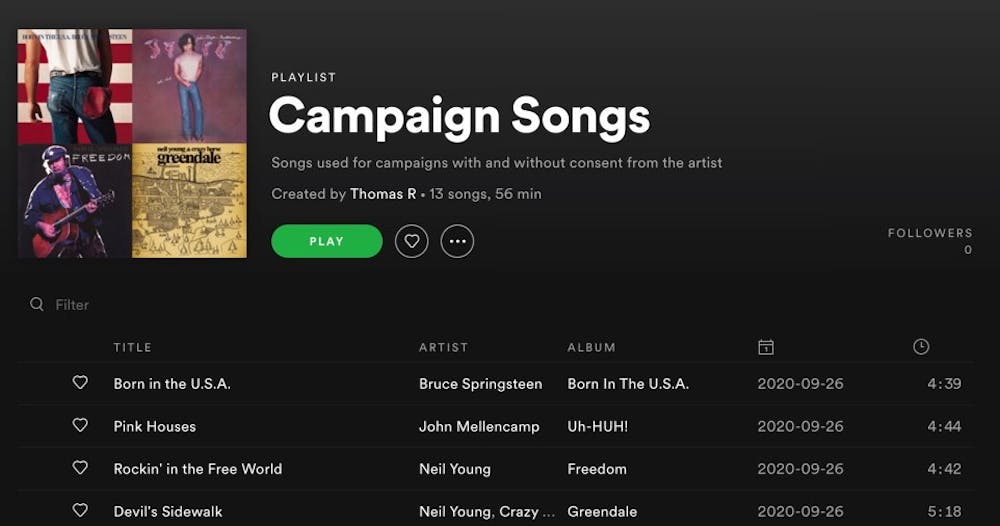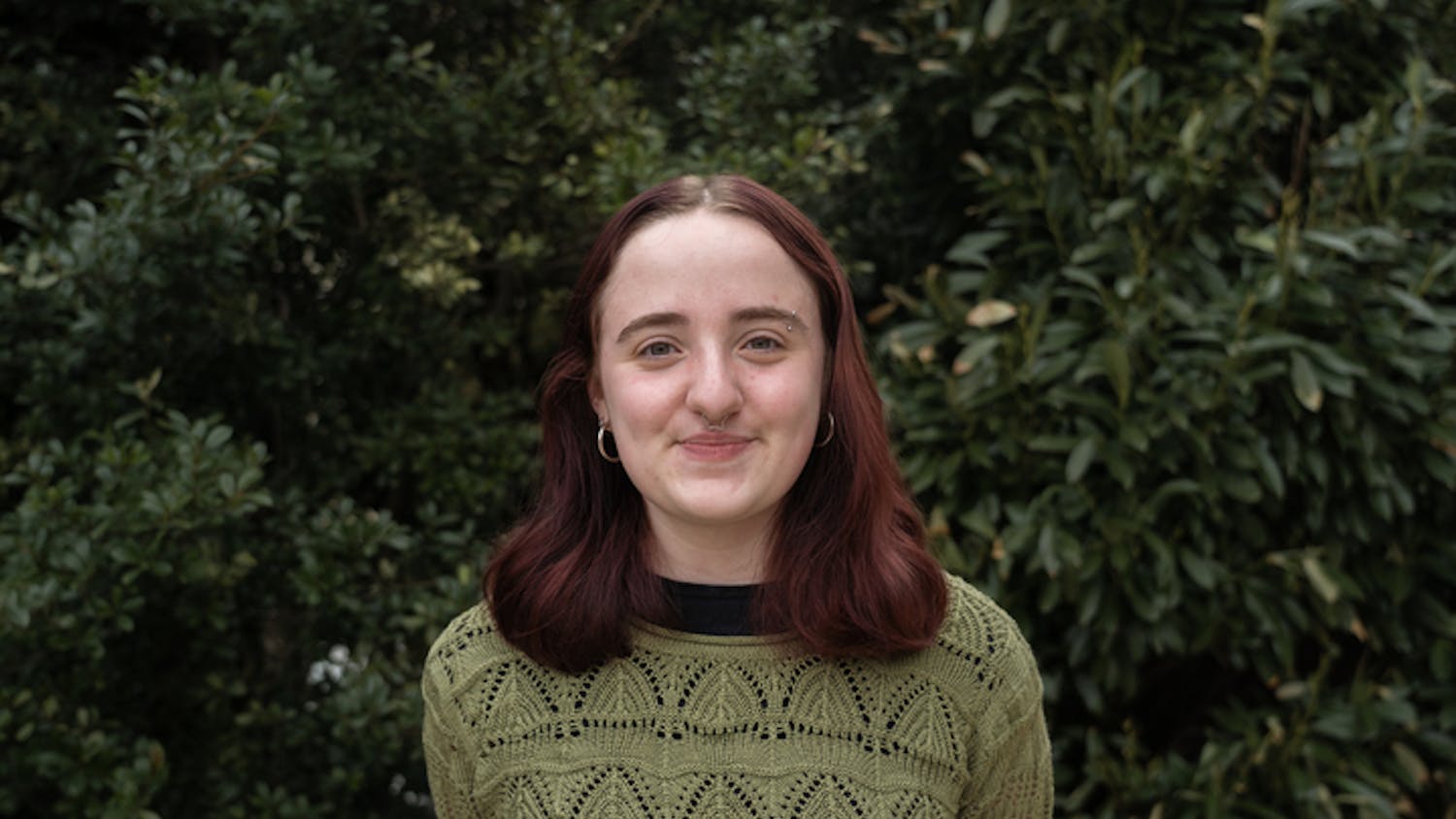The role of music in political campaigns has become a heated topic. In August, Neil Young sued Donald Trump’s campaign for the use of his songs “Rockin’ in the Free World” and “Devil’s Sidewalk” at campaign rallies.
Young argues that Trump never received authorization to use his songs at campaign rallies and is therefore violating Young’s intellectual property rights. In March, the rock musician performed at a virtual rally with Sen. Bernie Sanders (I-Vt.), who has also used his music at campaign rallies.
His lawsuit has shed light on issues with music licensing that not even Jackson Browne’s 2008 lawsuit against John McCain exposed. McCain used Browne’s “Running on Empty” in a TV commercial, and after the GOP settled the lawsuit, it promised to receive licensing for all future song use from any artist.
In July, a group of artists including Blondie, John Mellencamp and Mick Jagger signed a letter demanding political parties, politicians and campaigns request permission to use their music. The letter emphasized that consent is needed to use artists’ music and that use without consent undermines the effectiveness of music while alienating fans.
“More importantly, falsely implying support or endorsement from an artist or songwriter is dishonest and immoral,” the artists wrote in the letter. “It undermines the campaign process, confuses the voting public, and ultimately distorts elections.”
Michael W. Carroll, faculty director of WCL’s Program on Information Justice and Intellectual Property, offered a picture that suggests nothing will change soon.
“Unless the court approves the ‘political license,’ I expect that we’ll see this scenario to continue to play out in future election cycles for decades at least,” Carroll said in an email.
At this year’s Democratic National Convention, Billie Eilish, Maggie Rogers and Leon Bridges each gave performances virtually. Jon Bon Jovi and Bruce Springsteen explicitly endorsed Hillary Clinton’s presidential bid in 2016, and they performed at her final campaign rally.
At this year’s Republican National Convention, hardly any music was used, besides some including Leonard Cohen’s “Hallelujah” and “God Bless the USA” by Lee Greenwood.
A Rolling Stone article indicated that Cohen’s estate is considering taking legal action against the RNC for using “Hallelujah” at the convention. The Rolling Stones has also threatened legal action against Trump on multiple occasions. Its song, “You Can’t Always Get What You Want,” has been regularly played at Trump rallies, including the controversial Tulsa rally, which took place this summer after Juneteenth.
In 1984, Ronald Reagan used Bruce Springsteen’s “Born in the U.S.A.” as a campaign song against Springsteen’s wishes. Conservatives like Reagan missed that the song is about the poor treatment of Vietnam War veterans when they returned home. John Mellencamp’s “Pink Houses” has been misinterpreted in a similar manner; it is, in fact, about the struggles of the working class and how the American dream became the American nightmare. Mellencamp endorsed Michael Bloomberg for president in 2020 and appeared in a campaign ad.
Neil Young finds himself in a similar position as other artists whose music was used by politicians without permission. He may have to resort to publicly shaming Trump persistently in order to not have his music used at rallies. But, Young faces legal challenges in achieving a successful lawsuit.
To play music at campaign rallies, political campaigns are required to obtain a blanket license that allows any entity (political campaigns, radio stations, businesses, etc.) to play music in any form. The process for obtaining a blanket license can be done online.
“The problem is that the American Society of Composers, Authors and Publishers, or ASCAP, and Broadcast Music, Inc., or BMI, are under antitrust consent decrees with the Department of Justice that go back to the 1940s,” Carroll said. “Under those decrees, ASCAP and BMI need to get permission from the court overseeing these decrees before changing their licensing terms. They haven’t done this with the political license.”
Carroll outlined legal roadblocks that could derail Young’s efforts.
“Political campaigns are likely to be able to play whatever music they want at rallies or conventions for the foreseeable future,” Carroll said. “The reason is that under copyright law, they are making a public performance of the song.”
Neil Young’s case could set future precedents for music lawsuits against political campaigns.
To supplement this overview, The Eagle has created a Spotify playlist of campaign songs used with and without consent from the artists.





